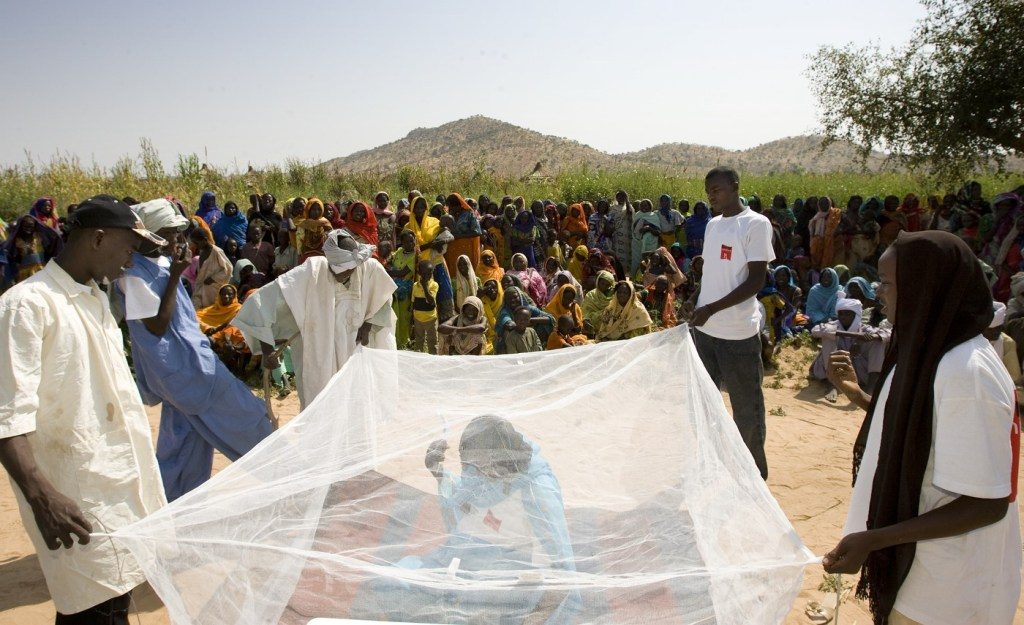MENTOR is working in Gore (Southern Chad) in four refugee camps in Amboku, Gondje, Dosseye and Doholo, hosting a total of 46,771 people as well as in two returnee camps in Danamadja and Kobitey hosting a total of 18,262 Chadians (previously based in CAR).
Southern Chad is host to tens of thousands of refugees fleeing the fighting in neighbouring chaotic CAR. In February 2015, Boko Haram (the Islamist extremist group) attacked the Chadian shore of Lake Chad, reacting to Chad’s military interventions in Cameroon. The Boko Haram attacks forced at least 40,500 people to flee their homes between January and August 2015 (IDMC figures). Now, approximately 111,500 people are internally displaced along with 200,000 refugees from Sudan as well as 100.000 refugees and more than 150.000 returnees of Chadian origin from CAR. Displaced people are even more vulnerable to malaria and other vector borne diseases as they are often living in make-shift shelters without any means of protection. Mass influxes of refugees are adding to the rapid population growth in Chad and consequently adding pressure on a weak and underdeveloped healthcare system.
The health structure within the refugee camps is fragile and under resourced. Knowledge of malaria care amongst medical staff is often limited and drug stock is badly managed, leading to recurring stock outs and important drug shortages. Supplies of ACTs (Artemisinin-based Combined Therapy) and RDTs (Rapid Diagnostic Tests) to the camps as well as to the surrounding host population are low. However, with the right tools and support, death and suffering from malaria and other VBDs is entirely preventable.
We’ve created a dedicated page to MENTOR’s past work in Chad, serving both refugees from CAR and local populations with support from the United Nations Foundation in vector borne disease prevention, management and treatment.

